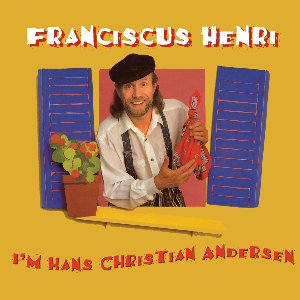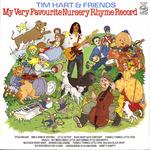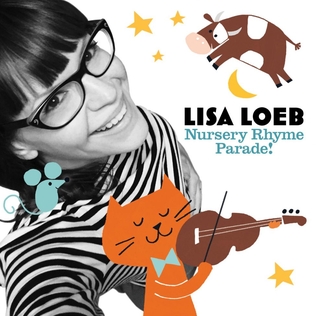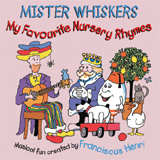
A nursery rhyme is a traditional poem or song for children in Britain and other European countries, but usage of the term dates only from the late 18th/early 19th century. The term Mother Goose rhymes is interchangeable with nursery rhymes.
"Twinkle, Twinkle, Little Star" is an English lullaby. The lyrics are from an early-19th-century English poem written by Jane Taylor, "The Star". The poem, which is in couplet form, was first published in 1806 in Rhymes for the Nursery, a collection of poems by Taylor and her sister Ann. It is now sung to the tune of the French melody "Ah! vous dirai-je, maman", which was first published in 1761 and later arranged by several composers, including Mozart with Twelve Variations on "Ah vous dirai-je, Maman". The English lyrics have five stanzas, although only the first is widely known. The song is in the public domain.

"Baa, Baa, Black Sheep" is an English nursery rhyme, the earliest printed version of which dates from around 1744. The words have barely changed in two and a half centuries. It is sung to a variant of the 18th century French melody Ah! vous dirai-je, maman.
A children's song may be a nursery rhyme set to music, a song that children invent and share among themselves or a modern creation intended for entertainment, use in the home or education. Although children's songs have been recorded and studied in some cultures more than others, they appear to be universal in human society.
Wee Sing is a songbook series published by Price Stern Sloan. It would also inspire a series of children's CDs, cassettes, coloring books, toys, videos, and apps.
Franciscus Henricus Antheunis, professionally known as Franciscus Henri, is a musician and children's entertainer. He has dual Dutch and Australian nationality. In 1970 he gained national prominence when he competed in the TV talent quest New Faces, which led to a recording contract with the Melbourne-based independent label Fable Records. From 1997, he also performs as Mister Whiskers, a travelling singer who loves children and performs for them with his dog companion, Smiggy.

I'm Hans Christian Andersen was released in 1994 by Australian children's musician, Franciscus Henri, via ABC Music's on compact disc. It received an ARIA Music Award nomination in 1995 for Best Children's Album.

My Very Favourite Nursery Rhymes is an album by Tim Hart and Friends.

The Drunken Sailor and other Kids Favorites is an album by Tim Hart and Friends.

Mainly Mother Goose is the sixth album by popular children's entertainers Sharon, Lois & Bram, originally released in 1984. It has been re-released several times, but the artwork on the front covers remained basically the same.

Mots D'Heures: Gousses, Rames: The D'Antin Manuscript, published in 1967 by Luis d'Antin van Rooten, is purportedly a collection of poems written in archaic French with learned glosses. In fact, they are English-language nursery rhymes written homophonically as a nonsensical French text ; that is, as an English-to-French homophonic translation. The result is not merely the English nursery rhyme but that nursery rhyme as it would sound if spoken in English by someone with a strong French accent. Even the manuscript's title, when spoken aloud, sounds like "Mother Goose Rhymes" with a strong French accent; it literally means "Words of Hours: Pods, Paddles."

The Sharon, Lois & Bram Car Tunes collection is a set of mini-cassette recordings released by the Canadian children's music trio Sharon, Lois & Bram in 1989 and 1990; some were re-released in 1995. It is the largest collection of music in the trio's repertoire. The collection consists of "mid-price[d] mini-tapes for children and their families." It contains a total of eight cassettes released under their own Elephant Records label. Each cassette contains between ten and twenty songs, all from previous Sharon, Lois & Bram albums. Each cassette has a central theme.

Old King Cole is a Disney cartoon in the Silly Symphonies series, based on several nursery rhymes and fairy tales, including Old King Cole. It was directed by David Hand and released on July 29, 1933.
Rub-A-Dub-Dub was a British television series animated by Peter Lang and Alan Rogers of the Cut-Out Animation Co. They were previously famous for Pigeon Street. The series was produced by David Yates and Joe Wolf. The title is a reference to the nursery rhyme Rub-a-dub-dub. Rub-A-Dub-Dub was animated in a similar way, yet all the characters were anthropomorphic animals. It ran in 1984, completing 25 episodes.
Jim Henson's Mother Goose Stories is a children's television show hosted by Mother Goose, who tells her three goslings the stories behind well-known nursery rhymes.

Gammer Gurton's Garland: or, The Nursery Parnassus, edited by the literary antiquary Joseph Ritson, is one of the earliest collections of English nursery rhymes. It was first published as a chapbook in 1784, but was three times reprinted in expanded editions during the following century, as were several unrelated children's books with similar titles. Gammer Gurton's Garland put into print for the first time some of our best-known nursery rhymes.

Pop Go the Wiggles! is the 27th album release from Australian children's music group the Wiggles. This album won the 2007 Aria Award for Best Children's album.
Rhyme Time Town is an American children's animated musical television series developed by DreamWorks Animation Television that reimagines classic nursery rhymes from the viewpoints of two preschoolers, Daisy the puppy and Cole the kitten. It premiered on June 19, 2020 on Netflix. A 10-episode sing-a-long series titled Rhyme Time Town Singalongs was released on December 22, 2020.

Nursery Rhyme Parade! is a children's album by American singer-songwriter Lisa Loeb.












